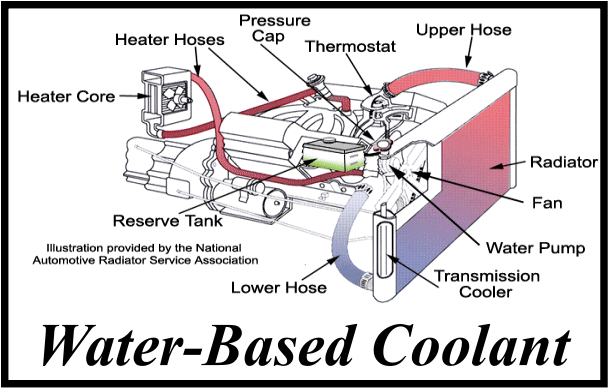

For years, we’ve used their No-Rosion additive, and it has performed exceptionally well. The company has recently introduced a high performance additive called Hyper-Kuhl that performs the anti-corrosion job but also improves cooling system efficiency. They offer a couple of products that will work. Our experience over the last 20 years or so of playing with different anti-corrosion products led us to a company called Applied Chemical Specialties (APS). There are a ton of these additives out there and many do an excellent job. For those living in these milder climates, you could get away with straight water with only an anti-corrosion additive. Here in Southern California, if it drops below 50 degrees F in the depth of winter, it’s headline news. So straight away, it would appear that the best coolant you can run is straight water.īut obviously we will need an additive to control corrosion as well as something to protect against freezing during the cold months. It has the ability to absorb more heat per unit of measure than any other coolant and matches that with the capacity to transfer that heat to the radiator more efficiently than any other coolant. Plain old fresh water is an amazing liquid. But if we apply a little science and do some digging, you might discover that a traditional, simplistic approach is often the best – leaving the “miracle” fluids to the dream chasers.

And as you have discovered, there is plenty of misinformation and outrageous claims of performance. Jeff Smith: Over the years, I’ve spent more time than I should have researching and testing engine coolants, additives, and their performance characteristics. I’ve also seen claims about additives you can just pour in and the engine will run cooler. Now that the temperature is heating up and my engine seems to be running hotter, I’m reading all kinds of stuff on the internet about different coolants.


 0 kommentar(er)
0 kommentar(er)
